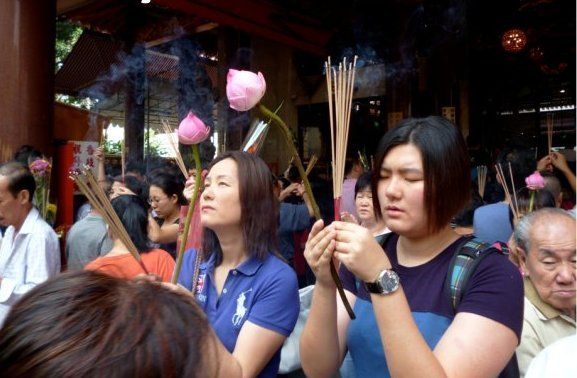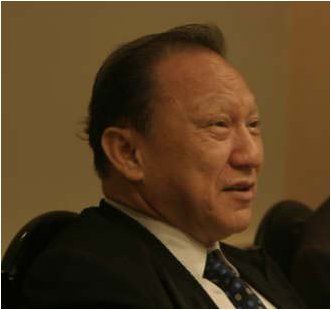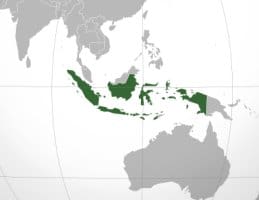Indonesia is a vast country of 17 000 islands, only 6 000 of which are inhabited. It straddles the equator from Sumatra in the west to Irian Jaya in the east. It is mountanous with several active volcanoes. In northern Sumatra 168 000 people were killed by the tsunami in 2004.
The population is around 238 million, the island of Java where 58% of the population live, being densely populated. The capital, Jakarta is an impressive and polluted city of over 12 million inhabitants.
Natural resources
Indonesia was previously a Dutch colony and gained independence in 1945. Today it has rapid economic growth and G20 predicts that it will be in the world top ten by 2020. It has natural resources of oil, gas, tin, copper and wood (deforestation is a problem) rich agriculture and a thriving tourist industry. Although no one seems hungry, the wealth does not filter down to the ordinary people. The contrast between the very rich and the poor is visible everywhere. Generally housing, education, transport infrastructure and health care are neglected.
Indonesia is a tourist’s paradise. It is extremely diverse in every sense – economically, religiously, socially and ethnically, with 300 people groups and over 700 languages. This leads to situations of tension which are not necessarily religious, but are often caused by opposing commercial interests.

Religious situation
Religious freedom is part of the constitution and is guaranteed to 6 recognised groups: Islam (87%, largely Sunnis), Protestantism, Catholicism (together around 9%), Hinduism (on the island of Bali), Buddhism and Confucianism. Indonesian citizens have an identity card that indicates their religion. Atheism is not recognised and blasphemy is outlawed.
Animism is widespread and a constant underlying formal religious practice. The national monument in Jakarta, in the vicinity of the central mosque and the Protestant cathedral, represents the unity of the yin and the yang, the rice pestle and mortar (the male and female principles), which underlies Asian cultures. The government encourages dialogue between religions to promote harmony and limit religious tensions.
If Indonesia is the most populous Islamic nation in the world it is not an Islamic state. Mosques are everywhere and the social influence of Islam is oppressive in many parts of the country. At present there is an on-going struggle between extremist and moderate muslims to influence government policy.
Although religious liberty is guaranteed, in practice minority groups suffer constant pressures from the majority, for example in obtaining permission to build places of worship. In 1997 there were ethnic riots against the Chinese, who form an important Christian minority group.
Evangelical believers in Indonesia
Protestantism in Indonesia is as diverse as the country as a whole. The Dutch heritage is visible in Reformed churches and missions and remains the majority influence. The growth of evangelical and charismatic groups has been rapid over the last 30 years. Reports about revival in some parts of Indonesia and signs and wonders are largely exaggerated. The important growth of pentecostal and charismatic churches is often attended by dramatic claims about visions and prophecies, the prosperity gospel and the influence of Yonggi Cho.

One recent development to note of the work of the evangelist Rev. Dr Stephen Tong, a Indonesian Chinese reformed evangelical who founded the Messiah Cathedral in a visible location in downtown Jakarta as well as a theological college (with around 80 students training for the ministry) and a Christian school on the same site. Dr Tong has planted churches in Bali, Singapore, Hong Kong, Kuala Lumpar, Taipei and Australia. These communities are active in evangelistic outreach thoughout Indonesia in which teams of 50-60 visit remote areas with the gospel. Hundreds of thousands are reached each year through these evangelistic rallies.
Points for prayer
- For peace and religious freedom in Indonesia
- That the goverment might be able to resist Islamic extremism
- For Christians involved in government and public life
- For real Biblical foundations to be laid in new evangelical communities
- For the work of the Reformed evangelical church and the Messiah cathedral in Jakarta
- For the evangelistic rallies organised in Indonesia and the conversion of muslims and animists
- For the work of evangelical publishing and translation
For a powerpoint presentation to encourage prayer for Indonesia please click here.
Paul Wells




